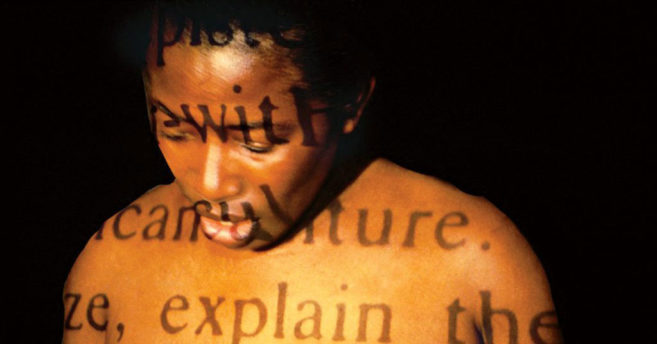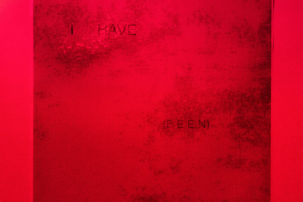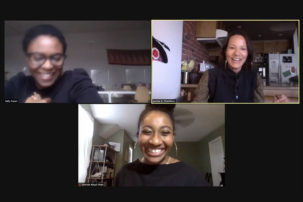The Black Curators Forum (BCF) is a knowledge-sharing initiative that fosters dialogue and social change, addressing unique challenges and highlighting the marginalized, suppressed and forgotten contributions of Black arts professionals to museums and galleries. BCF was inaugurated in 2019, inspired by a belief in the role of Black curators as cultural producers, changemakers and social innovators. Within a climate of growing expressions of anti-Black racism, and all forms of antagonism against Black communities in North America, it is imperative to provide a nuanced understanding of the more than four hundred years of Black presence in this part of the world—especially of how this presence has been elucidated and contextualized through arts and culture.
A history of anti-Black cultural and institutional policy continues to shape this country’s funding frameworks, academic art departments, public galleries, museums, artist-run centres and contemporary art narratives. The most recent examples of the devaluation of BIPOC life, police brutality and racist attacks have led arts organizations across Canada to publicly express their solidarity.
Privately, Black curators, writers and artists have reflected on and retold their experiences of anti-Black encounters in their places of work and collaboration. The professional trajectories, influence and access to resources offered by Canadian arts organizations do not adequately reflect our levels of experience and training, nor do they reflect the labour we have invested in our own professional practices.
The contemporary visual arts sector in Canada needs to engage the momentum of the current moment to take long-overdue steps toward authentic reform and accountability. This includes making substantial interventions to change art institutions, the majority of which continue to operate within frameworks based on exclusionary colonial power dynamics and systemic norms of white supremacist patriarchy. Taking action toward cultural equity, effective inclusion and explicit change must happen through:
- Creating and sustaining fairly compensated employment, advisory bodies and collaboration for Black artists, writers, academics and youth/student groups, including a marked increase of Black artistic and administrative leadership in public galleries, festivals, arts publishing, associations, funding bodies and centres across Canada
- Ensuring that hiring committees and governing bodies develop and adhere to equitable policies, not token employment gestures and statements. Qualified Black arts professionals require equitable access to stable, influential, mainstream, high-profile and well-resourced positions within Canada’s contemporary art ecology
- Allocating a percentage of public funding for which disbursement is conditional on evidence of the hiring, mentoring and programming of Black arts professionals and artists; and requiring the regular self-assessment of organizational space, publics, governance structures, programs and working environments to support the work, agency and professional/creative growth of Black staff, artists and collaborators
- Implementing policies and best practices at institutional and governmental levels that protect racialized staff, artists and volunteers from the unequal distribution of emotional labour as a result of dealing with anti-Black racism
- Committing at institutional and governmental levels to seek education, advice and information on sector-wide limitations, gaps and needs with regard to Black cultural workers and communities.
We stand in peace and solidarity with the dismantling and elimination of systematic anti-Black racism in Canadian arts and cultural institutions.
Eunice Bélidor, director and administrator, FOFA Gallery, Concordia University
Sarah-Tai Black, independent curator
Cécilia Bracmort, independent curator and administrative coordinator, articule
Charles Campbell, independent curator
Emilie Croning, exhibitions coordinator and collection manager, Wedge Curatorial Projects
Julie Crooks, associate curator, Art Gallery of Ontario
Pamela Edmonds, senior curator, McMaster Museum of Art
Shelley Falconer, president and CEO, Art Gallery of Hamilton
Alyssa Fearon, director/curator, Dunlop Art Gallery
Dominique Fontaine, curator and founding director of aPOSteRIORI
Sally Frater, curator of contemporary art, Art Gallery of Guelph
Michelle Jacques, chief curator, Art Gallery of Greater Victoria
Joana Joachim, research and exhibition coordinator, Artexte
Betty Julian, adjunct curator, Prefix Institute of Contemporary Art
Bushra Junaid, independent curator
Felicia Mings, academic curator, Art Institute of Chicago
Kenneth Montague, director and founder, Wedge Curatorial Projects
Crystal Mowry, senior curator, Kitchener-Waterloo Art Gallery
Lillian O’Brien Davis, curatorial assistant, MacKenzie Art Gallery
James Oscar, independent curator
Lise Ragbir, director, Art Galleries at Black Studies, University of Texas at Austin
Denise Ryner, director and curator, Or Gallery
Gaëtane Verna, director, The Power Plant Contemporary Art Gallery








